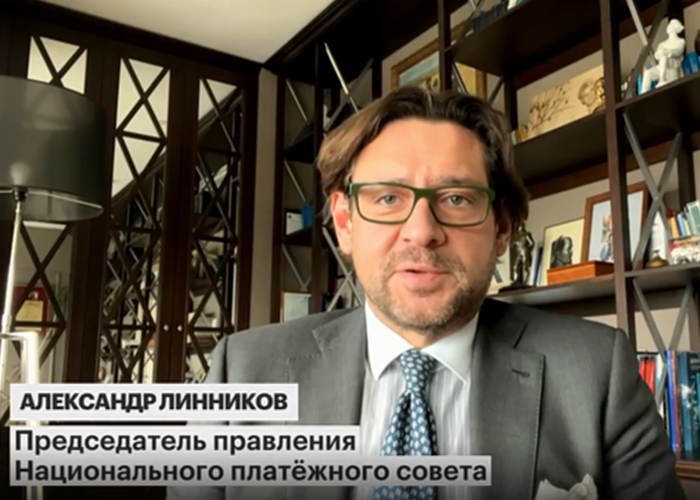
03/04/2024 on the air of the program “DAY” of the RBC channel, Alexander Linnikov spoke about the reasons for the termination of card servicing of the Russian payment system MIR by banks in Kazakhstan and Kyrgyzstan.
“Unfortunately, our friends in Kazakhstan and Kyrgyzstan are the object of skillful political manipulation by the US authorities. Let me remind you that secondary sanctions are a tool of political influence that is used extremely rarely. There are very few precedents for the application of secondary sanctions to banks in third countries, however, as practice shows, banks in Kazakhstan, Kyrgyzstan and some other countries are very sensitive to mild threats of secondary sanctions from the US financial authorities. The fact is that American law generally does not prohibit banks in third countries from working with Russian correspondent banks and clients, even with so-called “blocked persons”, if this happens outside the financial and payment systems of the United States and, moreover, in the national currencies of third countries. This decision of the Kazakh and Kyrgyz financial authorities cannot be called anything other than a concession to political pressure,” said the founder of L&P and continued: “Indeed, our friends in neighboring countries can be said to have been “scared”, forcing them to independently make a decision to limit the use of MIR cards. If settlements within the national payment systems of Russia and other states are carried out in their national currencies, outside the perimeter of the financial and payment systems of the United States, then there is no what is called in American practice “US nexus” — a stable connection with the legal and financial system of the United States. By definition, such operations do not fall under the influence of sanctions, and this is very clearly and clearly described in the explanations of the Office for Foreign Assets Control itself, known as OFAC, an organization that is used to “scare” financial organizations that maintain business with Russian banks and clients. Of course, the decision to stop servicing MIR cards will have unpleasant consequences for migrant workers, Russian tourists, and foreign students of Russian universities, but these are perhaps insurmountable troubles. It is of great concern that the financial authorities of Kazakhstan, Kyrgyzstan and other states prefer to act cautiously and make decisions in favor of blocking the service of Russian cards and, thus, demonstrate their preferences. For our partners, as it turns out, working with American correspondent banks and access to the US financial system is more important than long-term cooperation with Russia. It’s probably worth thinking about. It would seem that all the EAEU member states are part of the common economic space, but in reality there are barriers between them dictated by the financial authorities of a state that is, perhaps, one of the leaders of the global financial economy, but, nevertheless, should not influence the construction of the common economic space of the EAEU. Of course, for our partners abroad, this is a matter of priorities: who is more important for them to work with — Russian counterparties or Western ones in the perimeter of the EU and US payment systems. At the same time, possible solutions that are currently being discussed, for example, the creation of an autonomous payment system within the framework of the BRICS, will obviously lead to market segmentation.”






